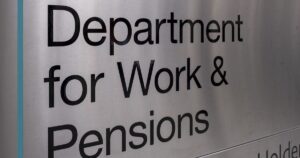
Millions of pensioners are waiting to hear how much their pension will rise next year. While figures have been given the actual rise is yet to be confirmed.
The pension will increase under the amount set by the “triple lock” guarantee. This means it increases every April by whichever is highest between average wage growth between May and July (including bonuses), September’s Consumer Prices Index (CPI) inflation measure, or 2.5%.
The Office for National Statistics said in September the average wage growth for the period was 4%. This is above the current rate of inflation which has stood at 2.2% for the past two months, July and August.
This would mean pensioners would get up to £460 extra if it is the 4% figure which is used. However confirmation cannot be made until the September inflation figure is announced.
This year’s figure will be available on October 16 at which point the pension rise will be confirmed, reports the Birmingham Mail.
But with inflation unlikely to rise above 4% it means those receiving the new State Pension are likely to get £460 taking their pension from £11,502.40 to £11,962 a year. This means they will receive £230 a week – almost £9 a week more than the current £221.20.
Those who retired before April 2016 and get the old State Pension will see their rise will be £353 a year. This will take their annual pension from £8,814 to £9,167 which is a weekly rise of £6.60 going from ££169.50 to £176.30.
People on the older system who also have SERPS payments will see that part increase in line with inflation. That figure is yet to be released.
The triple lock was introduced in 2010 by the Conservative-Liberal Democrat coalition government aimed at ensuring the value of the state pension was not overtaken by the increase in the cost of living or the incomes of working people. Chancellor Rachel Reeves has said the Labour government will maintain the triple lock until the end of the current Parliament.
However many are concerned over the future of the pension in the hands of Labour after the party scrapped the Winter Fuel Payment for millions of pensioners. The £300 payment was previously paid to all pensioners to help with the cost of energy but the Chancellor has announced this will now be means-tested and only paid to people in receipt of certain benefits.



















